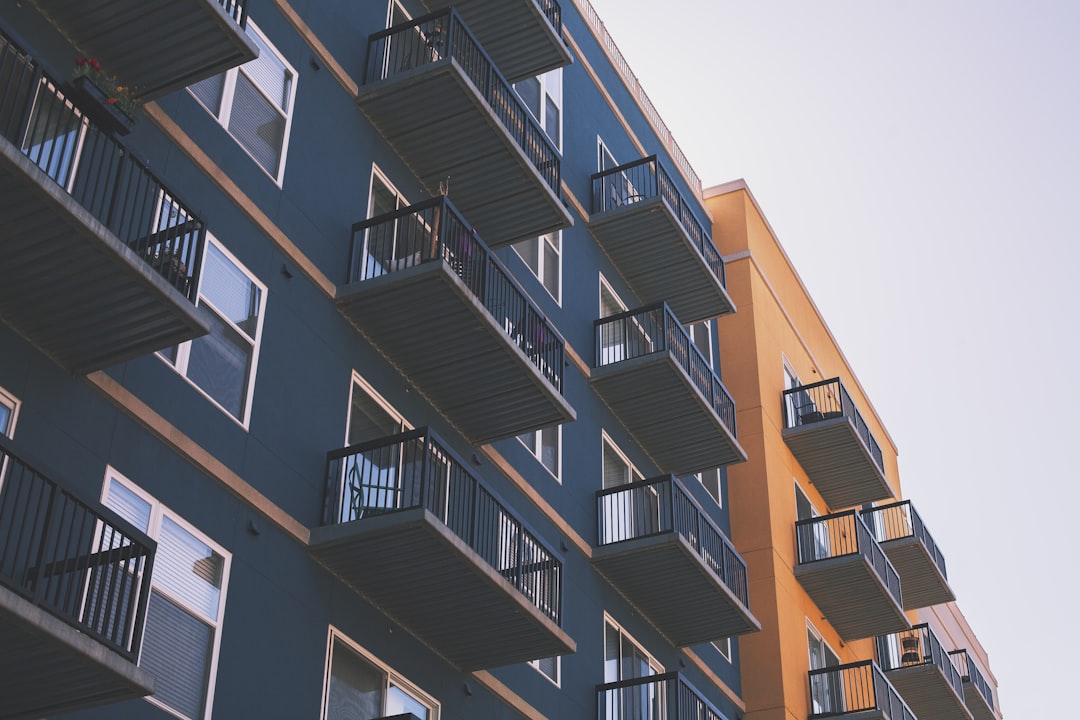Finding Your Home: Accommodation Types for International Students in the UK
Welcome to the UK! As an international student, one of your first important tasks is finding a place to call home. With so many options available, navigating the UK rental market can seem daunting.
This guide will provide you with a comprehensive overview of the most common accommodation types for international students in the UK, helping you make an informed decision about where to live.
Photo by Brandon Griggs on Unsplash
On-Campus Accommodation/University Halls of Residence:
- Halls of residence: Owned and managed by the university, halls offer a safe and supportive environment for first-year students. You'll typically live in a shared flat with other students, with communal kitchens, bathrooms, and laundry facilities. Some halls may also offer en-suite rooms for added privacy.
Pros Cons Convenient location, social atmosphere, built-in support network, often inclusive bills. Limited availability, less independence, potentially higher cost. Great for first-year students, social atmosphere, convenient location, all-inclusive bills, and often on-campus facilities like gyms and laundry. Can be expensive, limited availability, shared facilities, may not be very private, and not always guaranteed.
Private Student Accommodation:
- Purpose-built student accommodation (PBSA): These are large apartment complexes specifically designed for students. They offer a wide range of room types, from standard shared flats to studios and en-suite rooms. PBSAs often have on-site amenities like gyms, cinemas, and study spaces.
Pros Cons More flexibility and choice than halls, often modern facilities, social events, and activities. Can be more expensive than halls, potential for noise and disruption. Similar to university halls but often more modern and with more amenities, some offer en-suite bathrooms and private kitchens, and more flexible contract lengths. Can be more expensive than university halls, not always on-campus, and may still have shared facilities.
Shared Housing:
- Shared flats or houses: This is a popular option for students who want more independence and a lower cost of living. You'll rent a room in a shared property with other students or young professionals.
Pros Cons Affordable, more independent living, potential to build close friendships. Finding suitable roommates can be challenging, potential for personality clashes, and shared responsibilities for cleaning and maintenance. Most affordable option, great for students on a budget, independent living, potential to choose your housemates. Can be noisy and crowded, shared responsibilities for cleaning and maintenance, finding suitable housemates can be challenging, and may require longer contracts.
Homestay:
- Living with a host family: This option provides a cultural immersion experience, as you'll live in a family home and have meals with the family. This can be a good choice for younger students or those who want to improve their English.
Pros Cons Cultural experience, built-in support network, potentially home-cooked meals. Less privacy and independence, need to adapt to family routines and rules. Great way to immerse yourself in British culture, and live with a local family, often meals are included, good for short-term stays. Less privacy, may have to follow house rules, not as independent as other options.
Private Rentals:
- Pros: Most flexible in terms of location and type of accommodation, complete privacy, often pet-friendly.
- Cons: Most expensive option, can be difficult to find good deals, longer contract lengths, responsibility for all bills and maintenance.
Other Options:
- Studio apartments: A self-contained unit with a living area, kitchen, and bathroom. This is a good option for students who prefer to live alone.
- Houseboats and canal boats: For a unique experience, you could consider living on a houseboat or canal boat.
Factors to Consider When Choosing Accommodation:
- Budget: How much can you afford to spend on rent and bills?
- Location: Do you want to live on campus, close to the city center, or in a quieter area?
- Lifestyle: Do you prefer a social environment or a quieter space?
- Room type: Do you want a private room, an en-suite bathroom, or a shared flat?
- Amenities: What facilities are important to you, such as laundry facilities, a gym, or a garden?
Additional Tips for International Students:
- Start your search early: Accommodation in popular areas can fill up quickly, so start looking several months before you need to move in.
- Be prepared to provide references: Landlords may ask for references from previous landlords or teachers.
- Read the tenancy agreement carefully: Make sure you understand your rights and responsibilities as a tenant.
- Get insurance: Contents insurance will protect your belongings in case of damage or theft.
Finding the right accommodation can make a big difference to your experience as an international student in the UK. By taking the time to consider your options and do your research, you can find a place that feels like home.
Maze provides an end-to-end platform that disrupts the traditional relocation model.
We connect people relocating with service providers, reduce cost and enable the personalization of customer journeys to the UK.
Follow us on Instagram, Twitter, Facebook and LinkedIn, or Contact us with your relocation enquiries.


